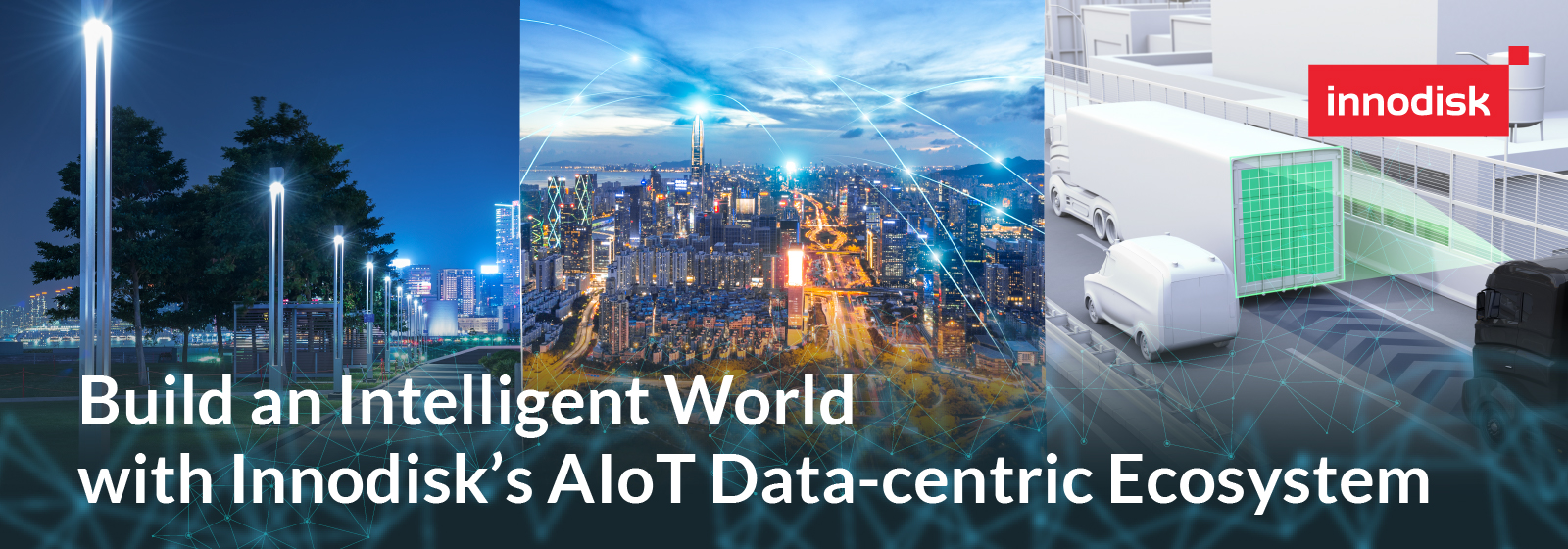Innodisk is building a more intelligent world with AIoT
It really does feel like we're living in a science fiction novel sometimes — or an episode of Black Mirror, depending on your level of cynicism.
Homes where every single appliance can be controlled through a single smartphone app. Intelligent virtual assistants capable of scheduling and prioritizing meetings and events. Sprawling digital ecosystems defined by remote work and connected endpoints.
That's not even getting into what we have on the business side.
Industrial supply chains that are more efficient and streamlined than anyone could have dreamed possible. Supply chains defined by entire fleets of self-driving vehicles. And atop it all, the ever-present specter of artificial intelligence.
Compare what we have today to how things looked just twenty years ago, and it's enough to make your head spin. Yet for all that our technology has evolved, it still has a long way to go. In few places is this promise and potential clearer than in the AIoT space.
Making the Internet of Things smarter
For the uninitiated, AIoT is exactly what it sounds like — Artificial Intelligence of Things. It's a blanket term for a group of technologies designed to improve efficiency, human-to-machine interactions, data management, and analytics on IoT devices. And it's arguably one of the fastest-growing segments of the larger business-focused IoT market, with a 39.1% annual growth rate expected over the next five years.
Yet many of its most compelling applications are, almost ironically, limited by hardware. Harsher operating environments such as those found in electric vehicles and industrial equipment place strict limitations on the nature of equipment that can be deployed. Some have sought to address this by minimizing hardware, leaving more sensitive components and their associated processes to be managed via 5G connectivity or the cloud.
It's an imperfect solution, at best. The complex processes necessary for even something as simple as a hands-free delivery robot tend to place intense demands upon the network — in the worst-case scenario, this may even result in congestion that impacts performance. Moreover, regardless of how fast a connection may be, there will inevitably be some latency introduced between decision-making and execution.
Given that many AIoT use cases require split-second decision making, this is untenable at best.
The solution, then, is to cut out the middleman of the network. Businesses must ensure that processing and data storage both take place directly at the edge. In order to achieve this, they need hardware that's capable of surviving even the most extreme operating conditions without experiencing damage or degradation.
That's where Innodisk comes in.
How Innodisk is building an intelligent world
In 2021, Innodisk collaborated with its subsidiaries to create a data-centric industrial ecosystem for the AIoT. Known as the AIoT All-Round Service, it combines Innodisk's leading expertise in industrial flash and memory with advanced knowledge of artificial intelligence. Over the first year, multiple clients leveraged the service for everything from IPC embedded peripherals to firmware and software — including working together with a high-tech venture in the smart services sector to integrate its customized SSDs into their AI robots.
Starting this year, Innodisk is taking things a step further. It's building out its smart services to target what may well be two of the most compelling trends in the Internet of Things, smart cities and software-defined electric vehicles. Designed to withstand heavy vibrations and harsh outdoor environments, Innodisk's AIoT technology solutions are ideally-suited for a wide set of use cases under these umbrellas.
It's already completed one successful pilot in this arena. A multinational technology firm integrated Innodisks's wide temperature DRAM modules, industrial-grade flash storage, and a GPS tracker from its subsidiary into its electric vehicle fleet. Not only was it able to reduce pollution and noise emissions, but it also did so while simultaneously revolutionizing its retail delivery system.

Yet even this is just the beginning in terms of what the AIoT can do — the tip of the iceberg, as it were. As the world continues to evolve, new technology, innovations, and use cases will inevitably emerge. And Innodisk is well-prepared for these advancements, and has set its sights squarely on its goal of helping to build a better, more intelligent world.
Get Tom's Hardware's best news and in-depth reviews, straight to your inbox.

